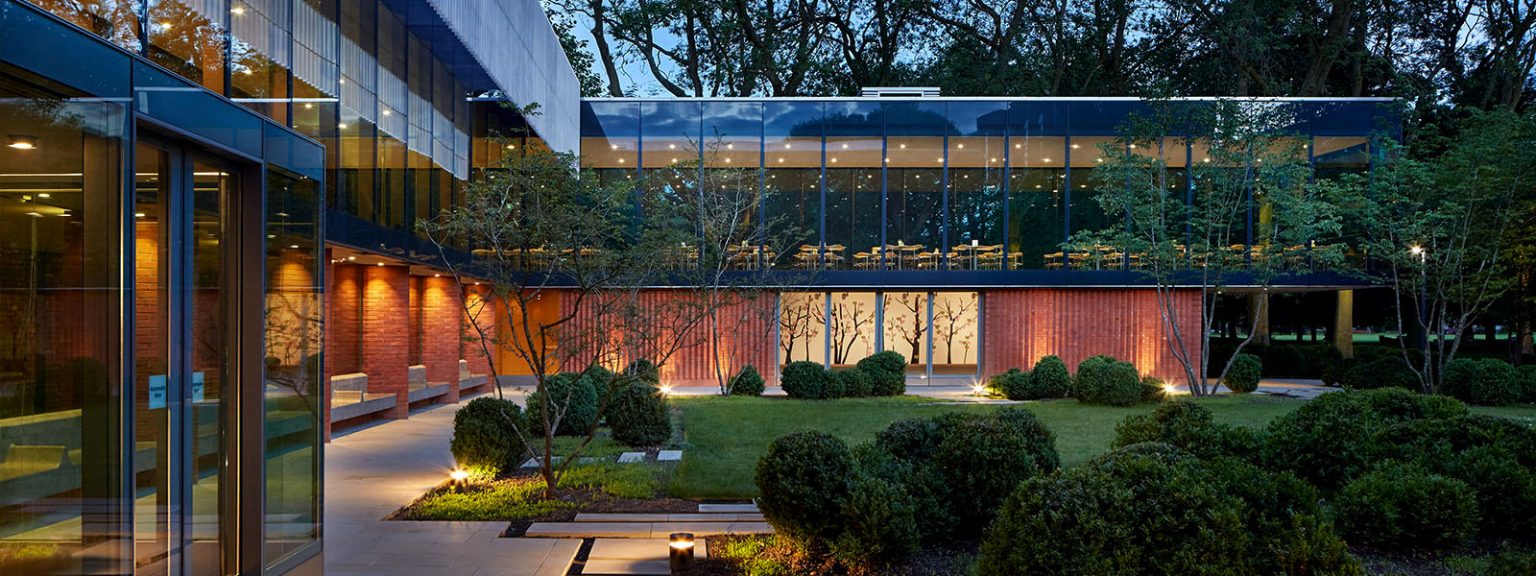Enjoy this article?
Most Museums Journal content is only available to members. Join the MA to get full access to the latest thinking and trends from across the sector, case studies and best practice advice.

An international ethics body has urged the University of Manchester to provide greater clarity as to the reasons that Alistair Hudson has reportedly been asked to step down as director of Whitworth Art Gallery.
Although the university said today that Hudson “is the Whitworth director”, it has not denied reports that he is under pressure to resign due to last summer’s dispute over a Palestine solidarity statement that the investigative agency Forensic Architecture displayed at the entrance to its Cloud Studies exhibition.
The reported attempt to oust Hudson comes after UK Lawyers for Israel (UKLFI), the legal trust that originally objected to the statement, demanded that he face disciplinary action for assuring the university’s vice chancellor that the Palestine statement had been fact-checked, despite a Freedom of Information request appearing to show that no such investigation had been carried out. UKLFI says the Palestine statement was “factually incorrect and dangerously one-sided”.
The International Committee for Museums and Collections of Modern Art (Cimam), a Spanish-based organisation affiliated with the International Council of Museums, has expressed “deep concern” about the developments and urged the university to be more transparent.
In a statement, Cimam’s Museum Watch Committee (MWC) said: “The proposal to dismiss Hudson after almost four years successfully directing both the Whitworth and Manchester Art Gallery comes as a great shock and the MWC demands that the conditions of his dismissal be made more transparent.”
The MWC described the compromise mediated by Hudson that allowed the Cloud Studies exhibition to reopen as “admirable” and said: “In light of the limited information made available to it, the MWC demands greater clarity as to the reasons for Hudson’s removal and reconsideration of the university’s decision, given that he took conscious and proactive steps to seek leadership’s consensus on difficult decisions, and has appeared to balance competing interests through the disputes surrounding Cloud Studies.”
The group added that the apparent attempt to force Hudson out “also speaks to the silencing of dissent by pressure groups with capital and influence”.
The developments at the university have been criticised as an attack on freedom of expression and curatorial independence. Earlier this week, 23 artists announced that they were withdrawing their works from the Whitworth leg of the British Art Show 9 touring exhibition, describing the university’s actions as a “direct attack on political freedom and artistic expression”.
In addition, 150 members of university staff and seven practitioners from Forensic Architecture have signed a letter opposing what they describe as the “attempt to force out” Hudson.
“We demand that he be reinstated and an apology issued by the UoM to this grave violation of academic and artistic freedom of expression,” the letter states.
“The Whitworth Art Gallery has a duty to provide a space for freedom of artistic and academic expression to its exhibitors. The University of Manchester has a duty to protect and support staff against attacks on academic and artistic freedom of expression. We believe that these two basic principles have been violated by the [university] through this action and the actions undertaken in August 2021, which were opposed by staff and students at the time.”
A university spokesman rejected accusations that the institution had suppressed freedom of expression.
The spokesman said: “‘Alistair Hudson is the Whitworth director. As we have consistently said, staffing matters remain strictly internal to the University and we do not comment on media speculation of this nature. For this reason, we cannot comment further on this at this time.
“We would, once again, like to address the explicit criticism in the coverage that the university has in some way suppressed academic and artistic freedoms, or bowed to external pressures. We refute such claims entirely.
“Indeed the university went to great lengths to ensure that the exhibition in question was uncensored and remained opened for the full period that had been planned.
“Museums and galleries have traditionally been a space of experimentation and challenge and we hope that the Whitworth is a place where we can debate, discuss and disagree well. As a university and gallery, there are various rights and duties which apply across our work, including the protection of academic freedom, freedom of speech and expression and duties under equality laws (including the public sector equality duty).
“We work tirelessly to ensure that these rights, and our duties, are considered fully and carefully.”
Most Museums Journal content is only available to members. Join the MA to get full access to the latest thinking and trends from across the sector, case studies and best practice advice.